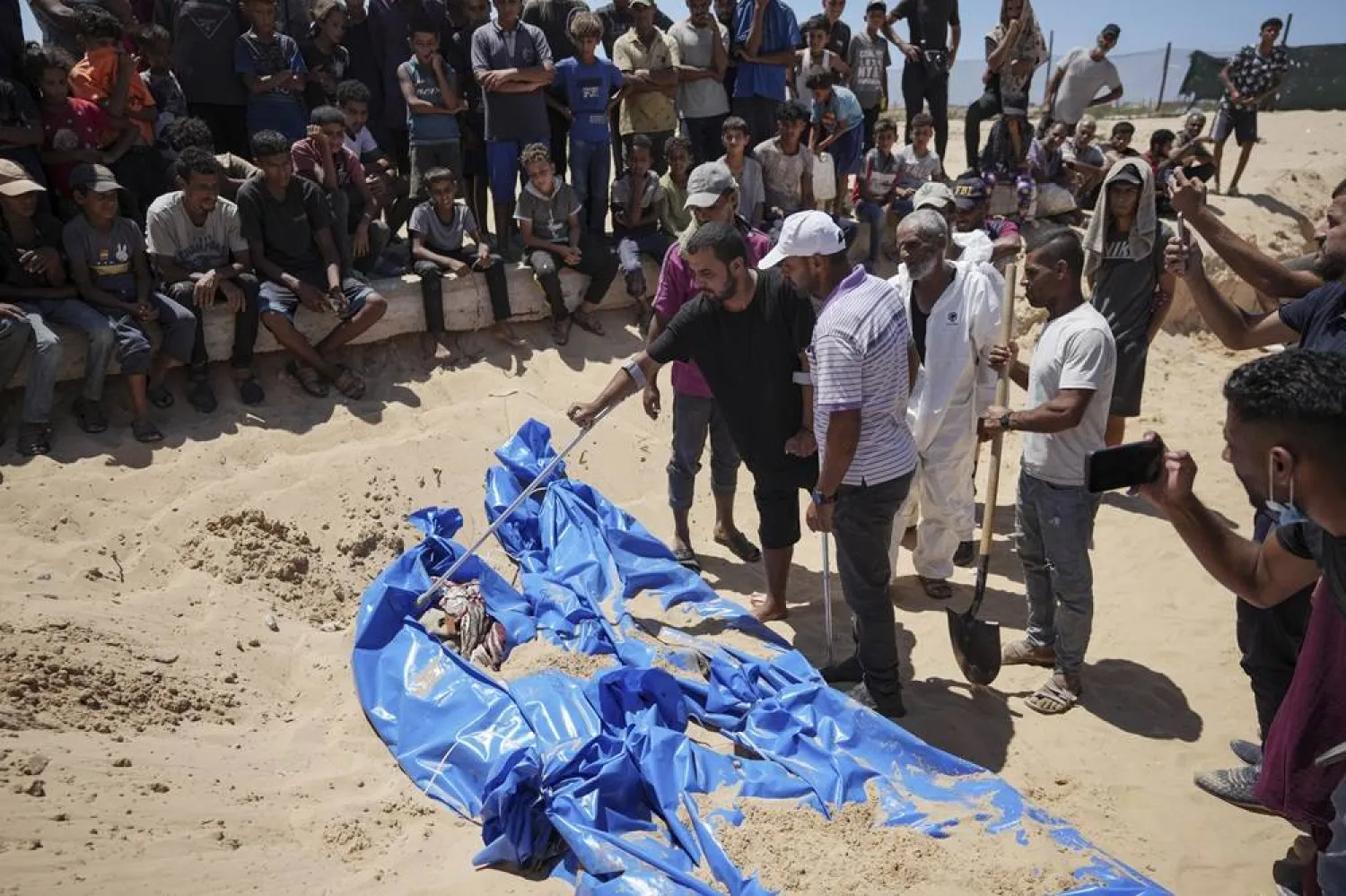Gaza's Civil Defense agency said it received the bodies of 80 unidentified Palestinians from Israel on Monday, which it buried in a mass grave.
"We received 80 bodies inside 15 bags, with more than four martyrs in each bag, each wrapped in a single shroud", Civil Defense director Yamen Abu Suleiman told AFP.
Abu Suleiman said Israeli authorities did not provide any information about the bodies, including their names or where they were found or taken from.
"We do not know if they are martyrs (killed in Gaza) or prisoners from (Israel's) jails", he added.
AFP journalists on the scene saw men in hazmat suits inspecting the corpses wrapped in blue plastic sheeting, before unloading them from the shipping container they had arrived in.
The bodies were then laid in a line for burial in a mass grave dug in the sand, with scores of Palestinians watching from the side.
The bodies were later buried at the Turkish cemetery, near Khan Yunis, the main city in the southern part of Gaza, AFP journalists said.
- A mother's search -
"You will ask me the reason why I put all the bodies in a mass grave?" said Tabesh Abu Ata from the Turkish cemetery.
"Because I have no capabilities to bury each one in an individual grave, (there are no) stones or tiles" for that, he said.
Salwa Karaz, a displaced woman from Gaza City in the north, told AFP that she had gone to the cemetery hoping to find her 32-year-old son Marwan, who went missing in January. He left behind an eight-month-old son.
"When we learned that 80 bodies had been handed over, we came to search in hopes of finding him among them", the 59-year-old told AFP.
"As of now, we have not learned anything," she lamented.
"We will try to identify him through his clothes. He was wearing brown pants, a navy blue shirt, a black jacket, and beige boots."
She last saw him leaving on his bicycle from their shelter in Deir al-Balah, central Gaza.
In a statement released Monday, Hamas said Israel's delivery of bodies without identities "exacerbates the suffering of the families of martyrs and the missing, who seek to know the fate of their abducted children or to bury their martyrs in a dignified manner".
The Israeli military did not offer an immediate comment.
In December, Hamas government sources said Israel returned the bodies of 80 Palestinians killed in Gaza after taking them from morgues and graves to check there were no hostages among them.
The bodies were then buried in Gaza, the sources added.
The war in Gaza began when Hamas attacked Israel on October 7, which resulted in the death of 1,197 people, mostly civilians, according to an AFP tally based on official Israeli figures.
Militants also seized 251 hostages, 111 of whom are still held captive in Gaza, including 39 the military says are dead.
Israel's retaliatory air and ground campaign in Gaza has killed at least 39,623 people, according to the health ministry in Hamas-ruled Gaza, which does not give details of civilian and militant deaths.









